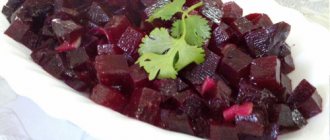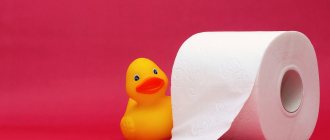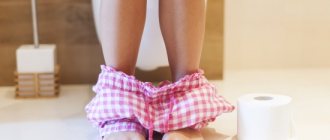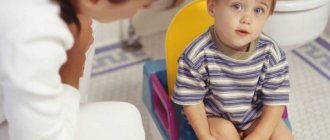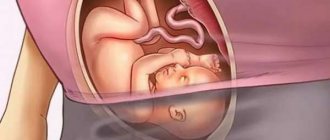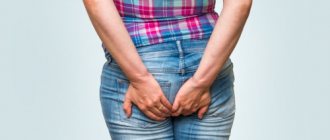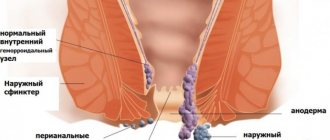Frequent bowel movements, but not diarrhea, is a symptom characteristic of various disorders in the functioning of the body and a number of serious diseases. The patient experiences discomfort due to a delicate problem, but often ignores the need to visit a doctor. Self-treatment at home can aggravate the condition and cause the addition of other disorders. It is necessary to distinguish a single loose stool in an adult from diarrhea in time and develop the correct treatment tactics.
Causes of frequent bowel movements
There are a number of reasons why adults have frequent bowel movements without diarrhea. Everyone needs to know these reasons, which will allow them to avoid unpleasant situations. The reason may be inflammation in the rectum, the patient experiences quite severe pain and bowel movements become more frequent. Initially, the urges are controlled, but a little later they occur involuntarily.
In many people, digestive enzymes are produced in small quantities; this deviation is associated with ongoing malfunctions in the functioning of the pancreas. For good digestion, the body needs a sufficient amount of enzymes. Due to their lack, a certain part of the consumed products cannot be digested, which is why you have to often run to the toilet.
The appearance of frequent bowel movements can occur due to the development of diseases: these can be colitis, gastritis, cholecystitis, pancreatitis. A person suffers from flatulence, a feeling of heaviness in the stomach, which causes frequent urge to go to the toilet.
This disease is difficult to determine if the intestines are in an irritated state, when after eating you have to immediately go to the toilet. There are situations when a person does not have time to finish eating when he feels the urge to defecate. With such ailment, the consistency of the stool changes, but loose stools are less common.
When a person eats a lot of fiber, he may face the problem of frequent bowel movements. When the nutrition menu changes, the number of daily bowel movements also changes.
With poor nutrition, this unpleasant phenomenon also appears. By eating a lot of raw vegetables and fruits, the intestines function faster, which is why you have frequent bowel movements. Vegetarians often experience a similar problem. Regardless of the cause, there is not only an increase in the frequency of bowel movements, but also a change in odor, stool consistency and color.
In an adult, frequent bowel movements may occur due to frequent neuroses. The nervous system has a strong impact on the digestive system and people who are subject to frequent and severe stress begin to suffer from frequent bowel movements.
Such deviations indicate the following problems:
- Schizophrenia;
- Many difficulties appeared at the same time;
- Instability of the emotional background and the presence of fear;
- Persistent irritation and stress.
Quite often, sensitive and emotional people in such a situation think that they have some kind of disease, which makes the situation more complicated and aggravated.
To fix this problem, you need to:
- Contact a doctor who will help you cope with stressful situations;
- Some people may take anti-depression pills for a while.
After identifying and solving the problem, the emerging problem with frequent bowel movements quickly disappears.
Hyperkinetic diarrhea - what is it?
Hyperkinetic diarrhea is a condition in which intestinal motility increases and accelerated movement of chyme into the rectum occurs. The pathology is often observed in children with diseases of the nervous system, neurological disorders, and psychoses (especially in the acute stage). The frequency of stool in this category of children can reach 4-5 times a day, while the excrement has a normal consistency, and its movement through the intestines does not cause pain or discomfort to the child.
In adolescents, frequent bowel movements can occur with initial and moderate forms of depressive disorders - psycho-emotional disorders manifested by bad mood, impaired thinking, and loss of the ability to experience positive emotions. Parents should monitor their child’s condition very carefully, since prolonged depression is the main cause of teenage suicide.
You can recognize the onset of depression by the following signs:
- the child experiences changes in the functioning of the body (stool becomes more frequent, the urge to urinate at night appears, sleep is disturbed);
- the child tries to spend more time alone, avoids communicating with friends and relatives, loses interest in surrounding events;
- increased absent-mindedness appears (the teenager does not immediately answer the question asked, concentrates his gaze on one point, suddenly changes the topic of conversation).
Depressive disorders in children
To correct the child’s emotional state when the first symptoms of possible abnormalities appear, it is possible to use plant-based sedatives (“Valerian officinalis extract”, “Motherwort”, “Corvalol”). Young children can be given sedatives in the form of dragees and syrups: “Hare”, “Bay-bye”, “Sibiryachok”, “Pomogusha”.
Note! Hyperkinetic diarrhea, accompanied by accelerated motility of the intestinal walls, may be a manifestation of insufficient secretion of thyroid hormones (hypothyroidism) or irritable bowel syndrome. In some cases, frequent bowel movements may occur while taking certain medications, for example, Magnesium Sulfate, antacid medications (Gaviscon, Rennie), or drugs used for chemotherapy protocols (5-fluorouracil).
Why is a private chair dangerous?
With increased bowel movements, the following consequences are possible:
- The development of vitamin deficiency and anemia, in which enzyme production deteriorates, and food entering the intestines remains unprocessed;
- If this pathology is not treated, significant weakening of vision, bleeding of the anal canal and bone fragility are possible;
- Vitamins and microelements required for the normal functioning of the body are released with feces;
- When the body produces insufficient bile acid, the number of trips to the toilet increases significantly during the day. The feces become oily and pale in color.
If you have frequent bowel movements with liquid diarrhea, we recommend that you read our other article: Causes and treatment of severe watery diarrhea in adults
Is it dangerous to have bowel movements often? Is it beneficial?
The boundaries of normality and pathology fluctuate. Normally, the frequency of bowel movements in an adult is from 1 to 3 times. But during the menstrual cycle, during pregnancy, after taking alcohol or medications, an increase in the number of urges may be observed. Temporary disruption is not dangerous and is beneficial; the body cleans itself on its own. But with a long course of the condition, there is a danger of developing vitamin deficiency, anemia, and insufficient production of bile acid. The reason is a lack of minerals and vitamins necessary for the proper functioning of internal organs and systems.
Against the background of deficiency, vision may deteriorate, bones lose strength, hair falls out, the anus begins to hurt and bleed.
Frequent bowel movements after each meal of solid food threatens the development of dehydration.
Diarrhea in an adult can be a consequence of disturbances in the functioning of internal organs. The main reason is a reaction to a food allergen, for example, milk, sugar substitutes, flavorings. If feces are stored for a long time, it is necessary to undergo an examination to exclude various types of pathologies of the digestive system, peptic ulcers, and other dangerous conditions. Do not delay your visit to the doctor, the doctor will help you maintain your health, normalize your stool, and choose effective treatment.
A person may suddenly experience frequent bowel movements without diarrhea, in which case the cause of its occurrence becomes unclear. Often the urge to go to the toilet may be false and accompanied by severe painful sensations.
When diarrhea occurs, it is not difficult to find out why it happened. But in the case of frequent urge without diarrhea, determining the cause is quite difficult.
Forbidden foods for frequent stools
Frequent bowel movements are often caused by poor diet. In such a situation, treatment begins with a detailed analysis of the products.
The following products can cause frequent bowel movements:
- Including foods high in fructose in your daily diet;
- Consumption of large amounts of dairy products;
- The use of artificial sugar substitutes, which can also cause some problems.
Until the disease disappears, it is recommended to exclude from the menu:
- Very hot foods that irritate the intestinal walls, which causes frequent bowel movements.
- Smoked and fried foods.
Prohibited Products
If bowel movements become frequent, but it is not diarrhea, then it is necessary to review the menu and exclude some foods from the daily diet. By the way, they are not recommended for use if you have diarrhea.
Adjusting nutrition is very important to solve problems, because one of the common causes is an unbalanced, unhealthy diet.
In this case, the following products can provoke both diarrhea and frequent urge to bowel movement:
- Sugar substitutes. Such an additive often becomes the main cause of intestinal upset.
- Milk. With large consumption of milk and other dairy products, bowel movements become frequent.
- Fructose. If you eat foods with a lot of fructose every day, you may have frequent bowel movements.
In order to get rid of the uncomfortable state, you need to carefully review the menu for every day. To do this, you can take the help of a nutritionist.
Until treatment is carried out and frequent bowel movements have not stopped, fried foods and smoked foods must be removed from the diet.
How to normalize frequent bowel movements?
Before starting treatment, a person needs to determine the reason why this happened, for this he needs to go to the doctor and undergo an examination.
They begin treatment based on the person’s lifestyle and habits.
To normalize the frequency of trips to the toilet, you need to:
- Conduct an analysis of products that were consumed 3 days before the onset of the disease;
- If possible, review and change the food menu.
You can also try including in your daily diet:
- Steamed or boiled lean meat;
- For such ailments, it is useful to drink black tea and boiled chicken eggs;
- To normalize bowel movements, jelly is excellent, but it should be cooked from natural products;
- Eating crackers can also reduce the number of trips to the toilet;
- Vegetable and meat broths;
- It is recommended to enrich the daily menu with low-fat cottage cheese and fish.
To normalize the volume of enzymes produced, you need to treat pancreatitis, which Festal and Mezim help with. During treatment, you should carefully adhere to the indicated dosage and follow the doctor’s recommendations.
If there is an increase in bowel movements caused by colitis, it is imperative to:
- Use antibacterial medications;
- They allow you to suppress pathogenic microbes that multiply in the intestines;
- The required dosage is prescribed by the doctor, depending on the patient’s well-being.
For chronic gastritis:
- The development of gastritis occurs due to an infection caused by the bacterium Helicobacter pylori.
- Gastritis can also occur as a result of other diseases that are associated with the stomach.
- Antibiotics are prescribed to treat gastritis.
When using antibiotics, intestinal microflora may be disrupted, resulting in dysbacteriosis. Due to a deficiency of beneficial bacteria, bowel movements become more frequent. To restore the microflora, you need to use probiotics and after some time, the stool will normalize and the formation of gases will decrease.
To treat intestinal irritation, you must follow the following rules:
- In the case when the disease develops in connection with neuroses, then medications for depression should be taken.
- The selection of medications is carried out taking into account the individual person.
- It is also recommended to go to a psychologist and do physical exercises.
If problems with stool occur, when a person begins to visit the toilet frequently, the following is required:
- Go to the doctor to determine the real cause of this phenomenon.
- In addition, you need to eliminate all the reasons that provoke nervousness in a person, go to a psychologist and take medications for depression.
- It is also recommended to review the diet menu and remove foods that can cause frequent bowel movements.
Features of the treatment of frequent bowel movements
Treatment is carried out after diagnosis and identification of the culprit of intestinal disorders. An examination is not enough for a doctor to make a diagnosis. It is necessary to undergo a set of laboratory tests to detect the presence of bile, pieces of food, blood, and other inclusions in the stool. Based on the results obtained, the doctor develops a set of therapeutic measures, including taking medications and following a diet.
Pharmacy drugs
Prescription of medications for adults is carried out in accordance with the identified problem.
When pancreatitis, gastritis, and other diseases are detected, the drugs Festal, Pancreatin, and Mezim are prescribed. The course of treatment lasts from 1 to 2 weeks. Enough to normalize the functioning of the pancreas.
If the correct microflora is disturbed, it is necessary to take probiotics to eliminate gas formation, bloating, nausea, and form proper stool. They use Bifidumbacterin, Linex.
For psychological reasons for frequent bowel movements, Drotaverine and Papaverine are prescribed to eliminate spasms. Alosetron and Trimedat will help normalize the intestines. The work of a psychologist is of primary importance.
Changing food
To normalize the functioning of the digestive tract, stool in adults, and get rid of diarrhea, a diet is introduced, followed by drug treatment. Changing habits and nutrition consists of:
- Replace bread with crackers. Allows you to strengthen the intestinal walls.
- The broths are not strong; cook with dietary meat and light vegetables.
- Lean meat and fish. Steam food, stewing and boiling are allowed.
- Drink strong black tea without adding honey or sugar throughout the day.
- It is recommended to eat boiled eggs regularly.
- It is necessary to remove products that cause fermentation.
- Eat a small portion of low-fat cottage cheese every day.
- Drink plenty of water.
- Avoid dairy products if you are intolerant.
- Don't eat fatty foods. It causes the release of bile.
- Drink jelly made from natural fruits. Powder is prohibited; it may aggravate diarrhea.
Normal bowel movement
For an adult and a child over the age of 1 year, the physiological norm is considered to be cleansing the intestines 1-2 times a day. In newborns and infants, defecation occurs more often, which is associated with feeding with mother's milk or artificial milk formulas. It is allowed to cleanse the intestines once every 2 days depending on the individual characteristics of the digestive tract of an adult.
p, blockquote 2,0,0,0,0 —>
Normal feces have a formal appearance, brown in color, without mucus, streaks of blood and undigested lumps of food, and a putrid odor. Most healthy people have a bowel movement once in the morning. This indicates the proper functioning of the gastrointestinal tract and prepares the body to receive and digest new food. In all other cases, when the stool is liquid, frequent or with impurities, it is necessary to understand the causes of diarrhea.
p, blockquote 3,0,0,0,0 —>
Physiological reasons and signs of frequent visits to the toilet by and large
Repeated bowel movements are not always a manifestation of the disease. In some cases, frequent visits to the toilet are largely related to diet. The predominance of raw vegetables and fruits, bran and wholemeal bread, oatmeal and wheat porridge, greens, and berries in the diet can lead to cleansing of the body up to 3-4 times a day. Such foods are rich in fiber, which stimulates intestinal motility. At the same time, stool rarely changes its consistency, often sausage-shaped, sometimes more liquid. But there is an important sign - the absence of mucus, blood and undigested food.
p, blockquote 4,0,0,0,0 —>
Dairy products have a laxative effect: fresh kefir, milk, whey, yogurt. Among dried fruits, prunes improve intestinal cleansing. A diet rich in fiber and milk sugar normally does not cause flatulence (increased gas production), abdominal pain and discomfort during bowel movements. This is the second important sign of a physiological increase in stool frequency.
p, blockquote 5,0,0,0,0 —>
Vegetarians and raw foodists visit the toilet more often, largely due to their dietary habits. Therefore, plant-based dieters should not worry about frequent bowel movements, provided that the stool is normal in appearance and the colon cleansing process is painless.
p, blockquote 6,0,0,0,0 —>
During gestation, hormonal changes occur in a woman’s body, which also affects the digestive tract. At the beginning of pregnancy, a large amount of progesterone is released into the blood, a hormone designed to reduce the tone of the uterus and preserve the fetus. Under the influence of progesterone, the intestinal muscles also relax, which leads to a frequent urge to defecate.
p, blockquote 7,0,1,0,0 —>
As the fetus grows, the uterus puts pressure on the bladder and large intestine. At later stages of pregnancy, a pregnant woman often goes to the toilet, largely due to mechanical irritation of the pelvic organs. The feces have normal consistency, color and composition. Bladder irritation is caused by frequent urination.
p, blockquote 8,0,0,0,0 —>
What to do at home quickly during constipation?
Laxative medications help to cleanse the intestines and quickly go to the toilet in large quantities.
It is extremely undesirable to self-medicate; it is better to give preference to those drugs whose composition contains herbal ingredients.
Let's look at which tablets will help you empty your bowels well:
- Norgalax suppositories - refers to emollient laxatives, its price starts from 80 rubles; Norgalax should be given to people who are contraindicated to push.
- Duphalac - refers to osmotic laxatives, contains indigestible carbohydrates - its cost is from 250 rubles, helps with acute and chronic constipation.
- Mucofalk is considered a bulk laxative drug that can dilate the intestines due to the presence of indigestible components: cost from 500 rubles.
- Microlax is a microenema that helps to urgently cope with constipation, has no age restrictions: its cost starts from 350 rubles.
In addition to the listed drugs, Fitolax will help you easily cope with constipation - its action is aimed at irritating the intestines, which stimulates the process of peristalsis and does not allow stool to harden.
Important! If a child has constipation, you should not give him any remedy from the listed list. It is better to limit yourself to natural laxatives contained in the diet.
If you have bloody bowel movements, you should urgently consult a doctor - there may be a pathology of the digestive system in the body.
We invite you to familiarize yourself with Measles - causes, symptoms, treatment and prevention of measles in children
Quick overnight constipation remedy:
- We dilute a dessert spoon of honey in water at room temperature (23 cups), stir until dissolved and drink in small sips at night. A good night's sleep and soft stools in the morning are guaranteed!
- Castor oil (castor oil) is taken in the evening, 2 tablespoons or in capsules. After 5-6 hours, a laxative effect is achieved - just in the morning. Castor oil is a product of plant origin; oil is produced from castor beans by pressing.
Useful in the morning:
- Coffee with milk, tea with honey and lemon in the morning promote soft stools.
- Baking soda promotes rapid bowel movements. Drink the soda solution in the morning on an empty stomach. Take soda at the tip of a knife and dilute it in a cup of hot water. Half an hour before meals, drink a soda drink in warm, small sips. Quickly, literally after 10 minutes, this folk remedy for constipation works quickly.
- In the morning in bed, before getting up, it is useful to do express exercises to improve bowel function (see above).
During the day:
- Traditional medicine recommends using warm radish juice and cabbage brine, and yogurt as laxatives.
- Tea made from dried cherries and dried apples is useful to drink 4-5 times a day against constipation.
- A folk laxative is cucumber pickle. To prepare it, you should keep the cucumbers in salt water for 1 month. Then drink 4 glasses a day. Constipated people should not eat cucumbers.
- Brew 15 grams of buckthorn bark and drink as tea.
- Laxative berries: plums, prunes, wine berries. Pour in hot water and leave overnight, do not cook or sweeten. In the morning and generally throughout the day, it is recommended to nibble on plums or prunes.
- For breakfast, it is good to eat fresh, ripe, juicy fruits. If constipation is severe, then it is better to finely grate a large cup of fresh cabbage and an apple. But other than that, you don’t need to eat anything for breakfast.
- It is extremely important to chew your food thoroughly.
- Juices have a laxative effect: beetroot and spinach. They are extremely effective when mixed with carrot and celery juices and drunk continuously throughout the day.
In advanced cases, when a patient already suffering and exhausted from pain sits on the toilet and cannot quickly go to the toilet at all, one can only hope for a “magic pill”. Without medication, it is unlikely that you will be able to get rid of constipation instantly.
The safest, fast but mildly acting laxatives are osmotic: Macrogol (Forlax), Lakutlose (Duphalac, Normaze), Magnesium sulfate (powder). These drugs retain water in the intestines and soften the food bolus in the intestines. Magnesium sulfate is good to drink in “emergency” cases, if there has been no bowel movement for, for example, 5 days. It is drunk at night according to the instructions, which quickly relieves constipation the next morning.
Today, herbal laxatives in tablets are popular: phytolax and frutolax. They cleanse the intestines and regulate its functioning naturally.
But harsh medications - stimulants - quickly become addictive and weaken the intestinal muscles. These drugs work somewhat differently - they stimulate intestinal motility, forcing its muscles to work. For example, the very popular herbal remedy “Senna” causes severe muscle spasms, abdominal pain, and bloating.
To get rid of constipation and in the treatment of hemorrhoids, suppositories (rectal suppositories) are widely used: “Glecelax”, “Glycerin”, “Delladonna extract”, “Sea buckthorn suppositories”. Many of them are of plant origin, have a healing and laxative effect, and are very inexpensive. Due to the fact that candles are used exactly at the site of the “congestion”, the effect occurs much faster.
But the solution for rectal administration "Microlax", according to the instructions for use, is recommended even for newborns and children under 3 years of age as a laxative.
Experts recommend not to abuse laxatives at home, not to use them every day, only in emergency situations. Laxatives irritate the colon, which weakens it and causes muscle atrophy. They simply lose the habit of working like a driven, decrepit horse.
What diseases cause frequent bowel movements, symptoms
p, blockquote 9,0,0,0,0 —>
p, blockquote 10,0,0,0,0 —>
The act of defecation can be painful, accompanied by cramps, bloating, chills, and increased body temperature. The frequency of bowel cleansing in severe cases reaches up to 10 times a day.
p, blockquote 11,0,0,0,0 —>
The most common cause of diarrhea in men, women and children. Infection of the intestines with pathogenic bacteria occurs through poor quality food or water, if hygiene rules are not followed. Food poisoning usually occurs in the first hours after infection and is characterized by nausea, vomiting, and increased bowel movements up to 3-7 times a day. Toxic infections usually appear after 6-12 hours, have a more severe course and can cause complications.
p, blockquote 12,0,0,0,0 —>
Deterioration of the general condition occurs due to intoxication with waste products of pathogenic bacteria. The body is trying to get rid of toxins, so the patient often walks around. Poisoning is accompanied by chills, fever, headache, weakness and drowsiness. The feces are liquid, foul-smelling, sometimes foamy, and greenish in color.
p, blockquote 13,0,0,0,0 —>
Food poisoning is associated with pathogenic staphylococci, streptococci and E. coli, toxic infection - infection with salmonella, shigella (the causative agent of dysentery), and botulism bacilli. The latent (hidden) course of infections is usually accompanied only by frequent bowel movements, while feces, at first glance, may not differ from normal in consistency, color and shape.
p, blockquote 14,0,0,0,0 —>
The second common reason for frequent visits to the toilet is mainly inflammatory diseases of the small and large intestines. Pathology occurs at any age and is associated with constant errors in diet. Eating dry food, too fatty and spicy foods, fried foods, processed foods and fast food disrupts the normal process of digestion and absorption of nutrients.
p, blockquote 15,1,0,0,0 —>
Inflammation of the small intestine (enteritis) impairs the absorption of food. Diarrhea occurs up to 5-7 times a day; undigested lumps of food and mucus can be found in the stool. Enteritis is accompanied by vitamin deficiency and a lack of microelements. As a result, the functioning of the nervous, cardiovascular, and endocrine systems suffers. The skin becomes dry, hair falls out, nails peel, teeth decay.
p, blockquote 16,0,0,0,0 —>
Infection of the colon (colitis) is less likely to cause diarrhea. Loose stools are usually combined with prolonged constipation. The urge to defecate occurs up to 3-4 times a day. There is an admixture of mucus and blood in the feces. With frequent bowel movements, anal fissures and hemorrhoids (inflammation of the hemorrhoidal veins of the rectum) appear.
p, blockquote 17,0,0,0,0 —>
Disruption of the biocenosis of the digestive tract is associated with the suppression of normal microflora by conditionally pathogenic microorganisms. This condition in medicine is called dysbiosis. The disease occurs as a result of errors in nutrition, when the diet is dominated by meat products, baked goods, sweets and little plant foods.
What to do to normalize stool
In case of physiological weakening of the intestines due to dietary habits, you should include more meat and fish in the diet, and limit the consumption of raw fruits and vegetables. Products rich in fiber are best consumed stewed and baked until normal bowel movements are restored.
p, blockquote 26,0,0,0,0 —>
In case of illness, it is necessary to act depending on the cause of frequent bowel movements. To do this, you should consult with a specialist and undergo laboratory and instrumental diagnostic methods.
p, blockquote 27,0,0,0,0 —>
Recommendations for those who go to the toilet frequently:
p, blockquote 28,0,0,0,0 —>
- In case of poisoning, it is necessary to limit food intake, drink more fluids, and take enterosorbents (Activated carbon, Enterosgel, Smecta, Polysorb). If measures are ineffective, seek medical help.
- In case of toxic infections, which manifest themselves with a more vivid clinical picture and long-term persistence of symptoms, consult a doctor (general practitioner, infectious disease specialist) as soon as possible to prescribe antibiotics and detoxification treatment. If the condition is serious, call an ambulance.
- In case of enteritis, colitis, diseases of the biliary tract and pancreas, you should consult a gastroenterologist. Follow a diet with limited fiber, fatty, fried, salty and spicy foods. Complete the course of treatment prescribed by your doctor.
- If you have dysbacteriosis, include fermented milk products (kefir, yogurt, cottage cheese) in your diet, stick to small meals (4-5 times a day), give up carbonated drinks, flour, alcohol, and limit your consumption of sweets. Take a course of probiotic therapy to restore normal intestinal microflora (Bifidumbacterin, Linex, Acylact, Florin Forte).
- Irritable bowel syndrome requires a diet limited in caffeine, milk sugar, fructose, alcohol, hot spices, vinegar, legumes, and plenty of fresh fruits and vegetables. To improve well-being, it is recommended to undergo treatment with antispasmodics, antidiarrheals, antidepressants and probiotics.
- In case of food allergies and intolerances, it is necessary to identify unwanted foods and completely exclude them from the diet.
- Intestinal tumors require timely diagnosis by an oncologist and surgical intervention. Depending on the type of tumor, radiation or chemotherapy may be needed.
Pregnant women are recommended to wear a bandage in later stages, which supports the pelvic organs and prevents excessive pressure from the enlarged uterus. In the early stages, all that remains is to wait until the peak of the hormone progesterone in the blood decreases.
p, blockquote 29,0,0,0,0 —>
Causes of chronic diarrhea
Chronic diarrhea, which lasts several weeks or months with periodic exacerbations, is a symptom of a general disease or pathology of the digestive tract:
Celiac disease is gluten intolerance.
The disorder is very rare; diarrhea begins after eating foods containing gluten. This vegetable protein is found in wheat, rye, and oats. The disease is accompanied by constant diarrhea and severe gas formation.
Dysbacteriosis.
An imbalance between beneficial and harmful bacteria in the intestines. Develops due to taking antibiotics.
Lactase deficiency.
Manifested by diarrhea after consuming dairy products. It occurs due to a lack of an enzyme in the body that breaks down milk sugar.
Non-infectious intestinal diseases (Crohn's disease, duodenitis, irritable bowel syndrome) cause inflammation of the mucous membrane, increase peristalsis, so food comes out very quickly.
Chronic diarrhea leads to impaired absorption of nutrients, decreased intelligence and developmental delays (mental and physical). This condition requires urgent medical treatment.
If you have celiac disease, you must follow a gluten-free diet for life.
Features of the gastrointestinal tract
Young parents are very pleased with the fact that their baby’s intestines empty after every meal. But this is not acceptable for adults. Frequent bowel movements in an adult indicate symptoms of a certain disease of the gastrointestinal tract. If hyperperistalsis is observed several times a day, but there is no discomfort in the abdomen or inconvenience during bowel movements, this may well be considered normal.
A normal bowel movement is also considered one trip to the toilet. It is also allowed to have 2 bowel movements at a certain weight, when consuming laxative foods in large quantities or containing coarse fiber. There is no discussion about diarrhea in this particular case.
If the production of enzymes is insufficient, stool may be several hours after each meal. This suggests that the intestines are not able to carry out their work of breaking down proteins, fats and carbohydrates fully. If your metabolism is good, you can go to the toilet several times, but the consistency, color and specific smell do not change. If there are deviations from the normal values, contact a gastroenterologist. He, in turn, will order tests, and based on them he will draw conclusions and build a treatment plan.
Diagnosis and treatment
Diagnosis of rectal tenesmus begins with interviewing the patient, assessing general health, and studying a history of diseases. If a bacterial infection is suspected, a biological sample is inoculated in a nutrient medium to identify the type of pathogen and its sensitivity to antibiotics. Laboratory and biochemical tests will help detect qualitative and quantitative changes in blood composition. To determine the cause of false urge to defecate, instrumental studies are carried out:
- Magnetic resonance imaging;
- ultrasonography;
- CT scan;
- X-ray examination.
Treatment of intestinal tenesmus is aimed at eliminating its cause. For this, patients are prescribed drug therapy, and in case of detection of benign or malignant tumors, surgical intervention. Most often used in etiotropic treatment:
- antibiotics;
- antimicrobials;
- probiotics and prebiotics;
- antiulcer drugs;
- hemostatic drugs;
- adsorbents and enterosorbents;
- drugs to reduce excess gas formation with simethicone.
To reduce the severity of tenesmus, antispasmodics are used - Drotaverine or its analogue No-shpa in the form of tablets or solutions for parenteral administration. They have the ability to normalize the functioning of intestinal smooth muscle muscles, eliminate pain systems and prevent the occurrence of tenesmus.
Treating false urges to defecate on your own is extremely dangerous. If you constantly put off visiting a doctor and take pharmacological medications at random, the underlying disease will begin to progress rapidly. A timely visit to a doctor often saves a person’s life.
https://youtu.be/e00jwAdptrQ
Sometimes, unexpectedly, people may experience frequent bowel movements without diarrhea, appearing for unknown reasons. Quite often the urge to go to the toilet is false, accompanied by severe pain.
With diarrhea, it is not difficult to find out the cause of its occurrence. But with increased frequency of urge without diarrhea, it is quite difficult to determine the reasons.
Causes of frequent bowel movements (diarrhea)
Diarrhea - pasty or liquid stools. It can be from five to twenty times a day. In this case, the body can lose up to 95% of fluid - this can lead to dehydration.
So, the possible reasons are:
- incorrect dietary intake;
- starvation;
- use of untested folk remedies;
- eating foods that contain fiber;
- binge eating. In particular, this includes fatty foods, various carbonated and intoxicating drinks. In order to stop diarrhea, you just need to give up everything previously listed;
- uncontrolled treatment with antibiotics. For those who do not know, their long-term use, and especially not coordinated with a specialist, can cause frequent bowel movements in an adult;
- toxic infection. Food poisoning is caused by toxins. They are produced by bacteria that are outside the body. A certain group of pathogenic microorganisms are killed by boiling, but, unfortunately, not all. They are most often found in creams, meat, milk and other protein products. Diarrhea is accompanied by nausea, chills, vomiting, and stools are foamy and watery.
Diarrhea can be osmotic or exudative. The first property is characterized by impaired absorption of fluid, and the second by the content of mucus, pus, and blood in the stool.
When frequent bowel movements are a symptom of pathology
It is important to keep in mind that if a person goes to the toilet more than five times a day, immediately seek advice from a medical professional, this is not considered normal and indicates the presence of diseases.
Most of them who think that it will go away on its own, frequent trips to the toilet may occur due to insufficient production of bile acids. The stool becomes greasy, pale and has a shiny consistency. At the same time, vision decreases, and blood flows from the rectum. Such signs indicate pathology of the duodenum, liver or biliary tract. Therefore, it is so important to immediately contact specialists when deviations from the norm are observed. 5 most dangerous diseases:
- Crohn's disease. They cause complications on the joints, eyes, and liver. Can lead to anemia and sudden weight loss.
- Different types of colitis.
- Salmonellosis, giardiasis, amoebiasis. These bacteria can enter the human body through dirty water or poorly processed food. You need to buy products only from specialized retail outlets that have permission. Under no circumstances is it recommended to purchase food products at markets.
- Tuberculosis, dysentery, intestinal hyperthyroidism.
- Rectal or colon cancer and other oncological pathologies. Constipation abruptly gives way to diarrhea. The reason for this is the narrowing of the intestinal lumen due to the formation of a tumor. If you treat it in a timely manner, you can get rid of it as quickly as it appeared.
Rotavirus infections and hyporkinetic diarrhea = frequent bowel movements. When a person takes care of his body, that is, takes multivitamin complexes, gets vaccinations on time, undergoes examinations and takes other preventive measures, such problems bother him the least.
What to do if a teenager has diarrhea?
If the cause of the disease can be determined independently and it is not related to taking medications, infection or other gastrointestinal diseases, home treatment methods can be used. To do this, you need to follow a certain diet that will calm intestinal motility and allow it to work without tension. It will be necessary to exclude sweets, as well as spicy and fatty foods from the diet. Baked and boiled vegetables, rice, bananas and dried bread are recommended for consumption by teenagers during diarrhea.
But in this case, it is necessary to remember that as the child grows up, he begins to defend his opinion even if he is wrong. Therefore, the proposed diet should be discussed with him and try to come to a common opinion. In no case should you forcefully impose your point of view, as this can lead to confrontation, and, as a result, the teenager’s diarrhea will worsen. In this case, the development of diarrhea will be very strongly influenced by psycho-emotional factors.
But if loose stools appear constantly in adolescence, and the reason for its frequent occurrence cannot be independently determined, unformed feces should not be consolidated, as this may be fraught with accelerated development of the pathology that caused frequent watery bowel movements. In this case, the teenager should definitely consult a specialist - a gastroenterologist or therapist. Only with its help is it possible to carry out adequate diagnostics and identify the disease that causes diarrhea. The doctor should be told in full about loose stools in a teenager, describing the consistency and color of the stool, as well as the frequency of bowel movements and accompanying symptoms. This will help the doctor most accurately suggest the cause of the diarrhea and, if necessary, refer the patient to a more specialized specialist.
It is also necessary to remember that, regardless of the factor that caused diarrhea in a teenager, all manipulations for home or medical treatment of pathological intestinal dysfunction should be started very quickly. With watery bowel movements, the body of a person of any age loses moisture very quickly, so dehydration can occur at any time. An obligatory point in the treatment of diarrhea in a teenager should be increased drinking regimen.
Frequent bowel movements, how to treat?
ATTENTION! If there are signs of exudative loose stools, do not hesitate, contact an infectious disease specialist or a gastroenterologist.
Frequent bowel movements in an adult are not a simple phenomenon. Therefore, you need to pay great attention to the signals of the body. But you should not eliminate the causes by self-medication. Only a properly conducted diagnostic examination and complex therapy can relieve dangerous diseases. To do this, you just need to go to a medical institution to undergo an ultrasound examination of the internal organs and do a colonoscopy.
Possible complications
Diarrhea and frequent vomiting disrupt the water-salt balance in the body and cause psychological disorders: nervousness, apathy. Alarming symptoms that require immediate medical attention are:
- vomiting attacks that do not stop after all the measures taken;
- loss of skin elasticity, appearance of cracks on the lips;
- strong unquenchable thirst is a sign of fluid deficiency (dehydration);
- lack of relief after taking medications;
- convulsions;
- loss of consciousness.
Treatment of loose stools with folk remedies
Oak bark infusion:
- Buy oak bark at any pharmacy.
- Take 2 teaspoons of the medicine for a glass of boiling water.
- Leave for 1 hour, strain.
Take a tablespoon throughout the day. The entire prepared broth should be finished within this day; there is no need to prepare it additionally.
- Boil 4 cups of water and add tbsp. l. regular rice.
- Cook the decoction over moderate heat for 40 minutes.
- Cool and strain.
Take half a glass every 2-3 hours.
- Grind the pre-dried pomegranate peels using a coffee grinder and add boiled water.
- For 200 ml of boiling water you will need 1 dessert spoon of dry plant material.
- Place the container in a water bath and cook for twenty minutes. After this, leave for another 35 minutes.
Take one large spoon 4-5 times/day.
- Take 2 dessert spoons of the previously indicated raw material and brew it in 400 ml of boiling water.
- Let it brew for an hour, strain.
Take 100 ml three times a day. It is advisable to do this before starting a meal.
- Brew tsp. semicircular cooled water (it must first be boiled).
- Mix the composition thoroughly. Drink in one go.
This solution works great for diarrhea.
Diet for diarrhea
The first day you are allowed to drink tea with milk, chamomile infusion, and eat white bread crackers. Then you can gradually switch to lean meats, cereals, baked vegetables and fish. Throughout the day, sit down at the table 5-6 times. But eat food exclusively in small portions, this will avoid overloading the stomach.
Exclude foods - confectionery, smoked meats, coffee, fatty meat and fish. Carbonated and alcoholic drinks are prohibited.
Stick to this diet for at least one week. The remaining recommendations will be made by the attending physician.
